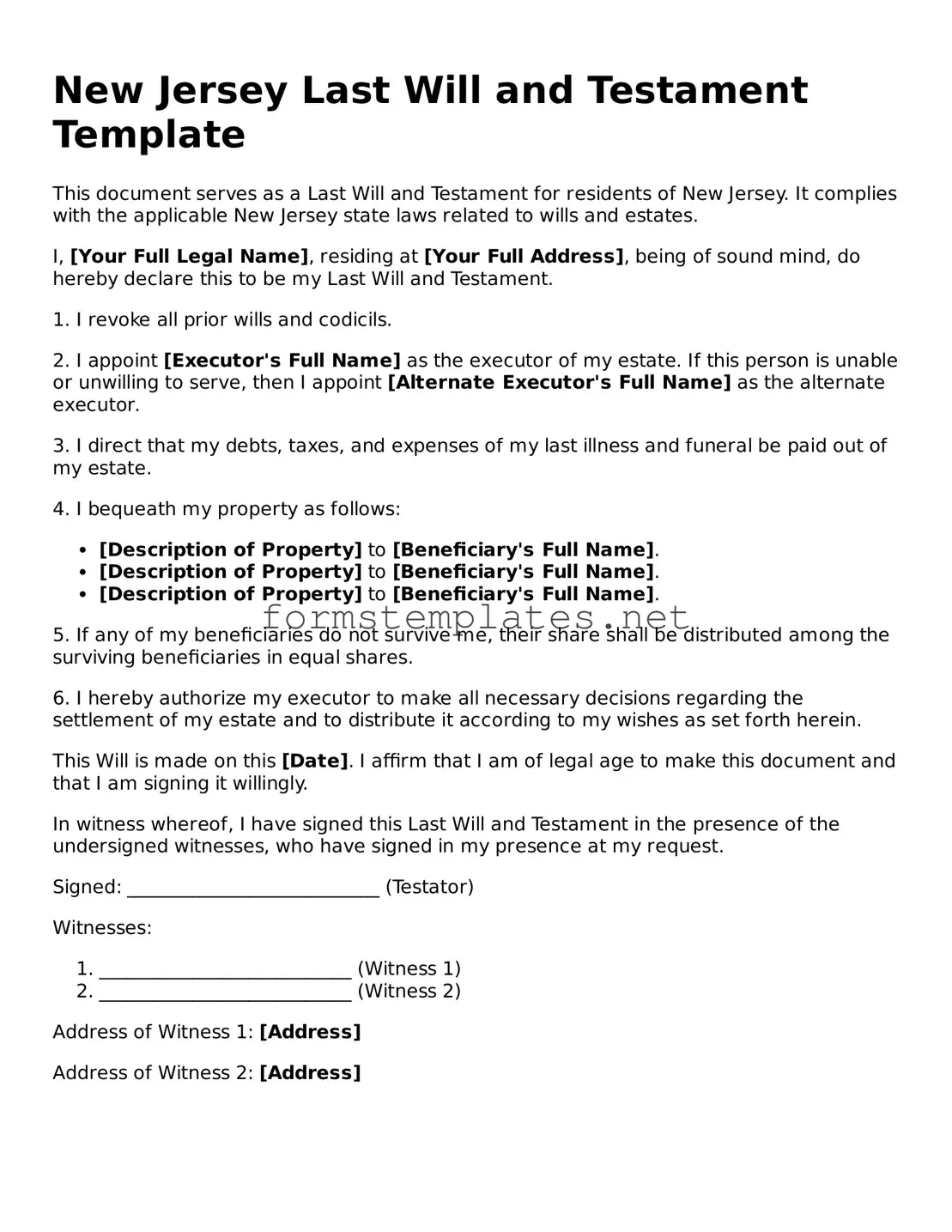Attorney-Approved New Jersey Last Will and Testament Template
A Last Will and Testament is a legal document that outlines how a person's assets and affairs should be handled after their death. In New Jersey, this form provides clear instructions for distributing property, appointing guardians for minor children, and designating an executor to manage the estate. Understanding the requirements and implications of this form is essential for ensuring that your wishes are honored and your loved ones are cared for.
Open Editor Now

Attorney-Approved New Jersey Last Will and Testament Template
Open Editor Now

Open Editor Now
or
⇓ PDF Form
Your form still needs attention
Finalize Last Will and Testament online — simple edits, saving, and download.